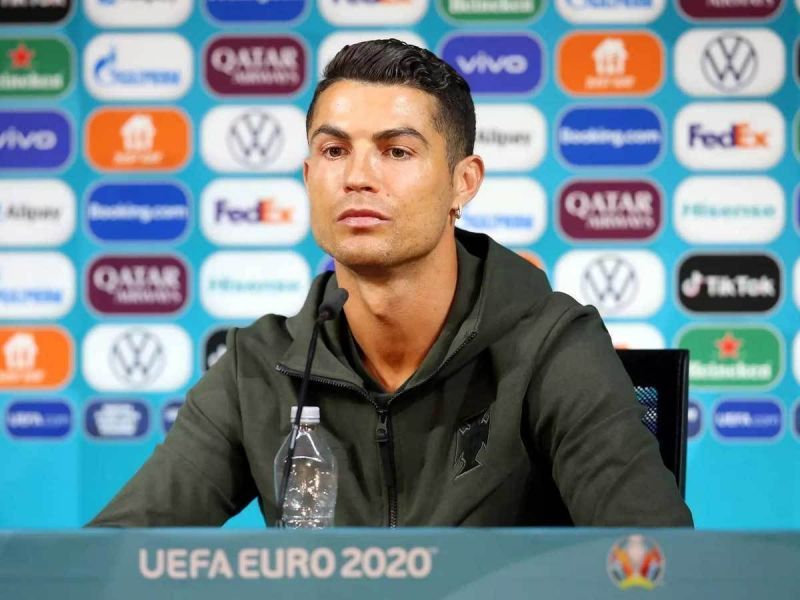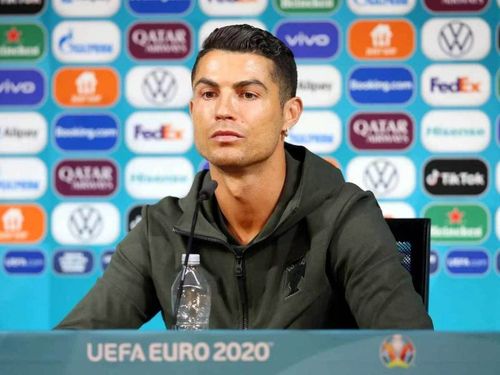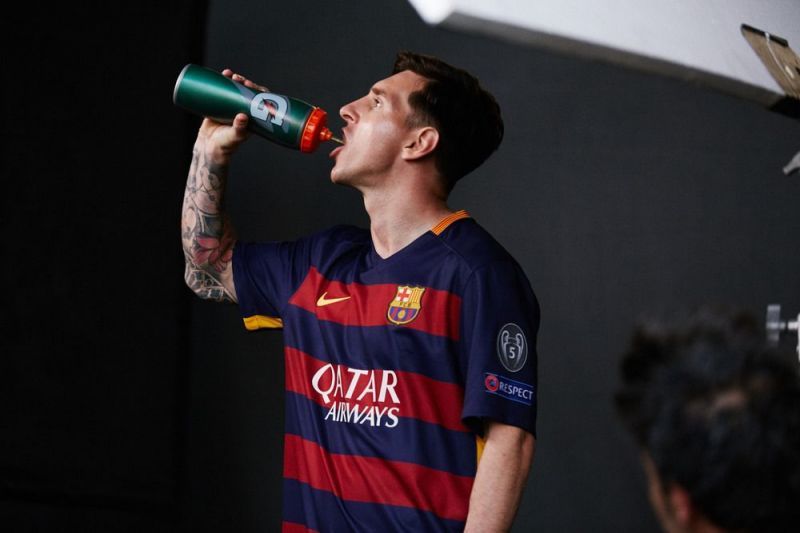
Amid 'Bottlegate' at Euro 2020, a look at the growing influence of sporting icons in advertising and brand values

A legend in the footballing world, Cristiano Ronaldo's integrity is being questioned for openly shunning at Euro 2020 a brand he has endorsed in the past, Coca-Cola.
Ronaldo was speaking to the media following Portugal's 3-0 victory over Hungary, in which he himself scored twice, breaking a few Euro records along the way as well. Coming to the press conference, Ronaldo moved two bottles of Coca-Cola out of camera view before proceeding to hold up a bottle of water and saying "Agua," indicating his choice of beverage was in line with his well-documented health fanaticism.
Ronaldo's actions triggered a chain of events at Euro 2020
What followed was a spectacular chain reaction which rocked both the footballing world and the share market. Almost immediately after the Portuguese's snub, Coca-Cola's share price saw a 1.6% dip. The implications of Ronaldo's action meant its market value also tumbled from $242 billion to $238 billion - a huge drop of $4 bn. This preceded a trend of sorts as more players jumped on the bandwagon and followed in the footsteps of Ronaldo.
Paul Pogba, a devout Muslim, removed bottles of Heineken at his own press conference just hours after Ronaldo himself. Interestingly enough, the beer is marketed as 0.0% alcohol.
Meanwhile, after Italy's comfortable 3-0 win over Switzerland in their Euro 2020 group stage match, Manuel Locatelli was seen replacing his coke with water in a similar gesture to Ronaldo's.
These events understandably prompted the UEFA to give a reminder to the 24 teams at Euro 2020 and their players regarding the contributions the various sponsors make to European soccer. The body has also warned players of sanctions, if they still decide to follow in Ronaldo's footsteps.
Euro 2020 tournament director Martin Kallen said the UEFA had "communicated with the teams regarding this matter."
"It is important because the revenues of the sponsors are important for the tournament and for European football," Kallen said in a press briefing.
But this whole episode has also rekindled the question of how much influence sports stars have on their fans' opinions of certain brands and products.
Read on as we take a deeper look at this commercial aspect of the sporting world.
Influence of athletes in advertising
In the last decade, sports celebrity influence has become a prevalent form of advertising for products like electronic gadgets, clothing, automobiles, and beverages.
Nike's partnership with Michael Jordan, the epitome of celebrity endorsement, has been recreated by a number of other brands, raking in millions of dollars.

In modern times, social media has become a one-stop destination for athletes to promote all sorts of items - big or small. It has given them a direct line of communication with their fans in large numbers.
Take the example of Cristiano Ronaldo himself. He recently hit 300 million followers on Instagram, which means he can influence almost 4% of the world population.
And he's just a drop in the ocean. There are hundreds of athletes who have such massive fan followings. The social media boom only expands the boundaries of their influence. And when they perform well - winning championships, breaking records or anything else - it only adds to their follower count.
And not only is this market influence large in number, but also effective in nature. There is ample evidence that suggests advertisements greatly influence the purchase and consumption behavior of people, especially children who are highly impressionable.
Athletes have invariably succeeded in attracting people to products that would have otherwise been of negligible interest to them today. Steph Curry with Under Armour, Roger Federer with Uniqlo and Messi with Adidas are just a few examples here.
There is, however, a flip side to this matter
With great power comes great responsibility, and in this case, comes the question of ethics. The harsh truth is that a number of these icons do not really stand by the products they advertise.
Case in point: Indian cricket captain Virat Kohli promotes Too Yumm chips and his own energy drink called O'cean one8 — which has sugar levels as high as a soft drink. It is not unrealistic to assume that he probably does not consume these products himself. It's the same thing with Ronaldo and Coca-Cola as well, albeit in the past.
Another issue that this Ronaldo incident has exposed is that individual star power, amplified by huge social media followings, can upend partnerships that companies have struck with teams and events. Euro 2020 has over 12 high-end sponsors, each of whom pay about $36 million to align themselves with the tournament, with Coca-Cola being one of them. The irony here is that even though Coca-Cola does not have direct bonds with Ronaldo, his actions had a direct negative influence on the brand as a whole.
It shows the influence that athletes have today that has led to companies rethinking their policies. In the last few years, companies have moved away from teams to focus on individuals.
Adidas is a template for this, which has significantly reduced the number of sports teams it sponsors today. Instead the brand has opted to focus on stars like Messi and Pogba. Nike partners with Ronaldo in football, LeBron James and Chris Paul in basketball, Naomi Osaka, Rafael Nadal and Serena Williams in tennis and many such icons in other sports.
In cases like Coca-Cola, where companies haven't made this shift, it has back-fired supremely.
One can, however, argue that by sponsoring a global event with multiple players spread across teams, Coca-Cola was spreading its risks. But what Ronaldo, Pogba and Locatelli have proven is that such is the clout of influencers today, that no company can escape the perils that come with sponsoring an entire team or tournament.
The essence here is that this paradigm shift was simply due to the magnitude of power that has been handed to sportspersons today. They can literally flip public opinion about any brand or product with just a single comment, post or an advertisement. And while this influence might be positive or negative, it is most certainly extensive, and in today's context, that is all that matters.